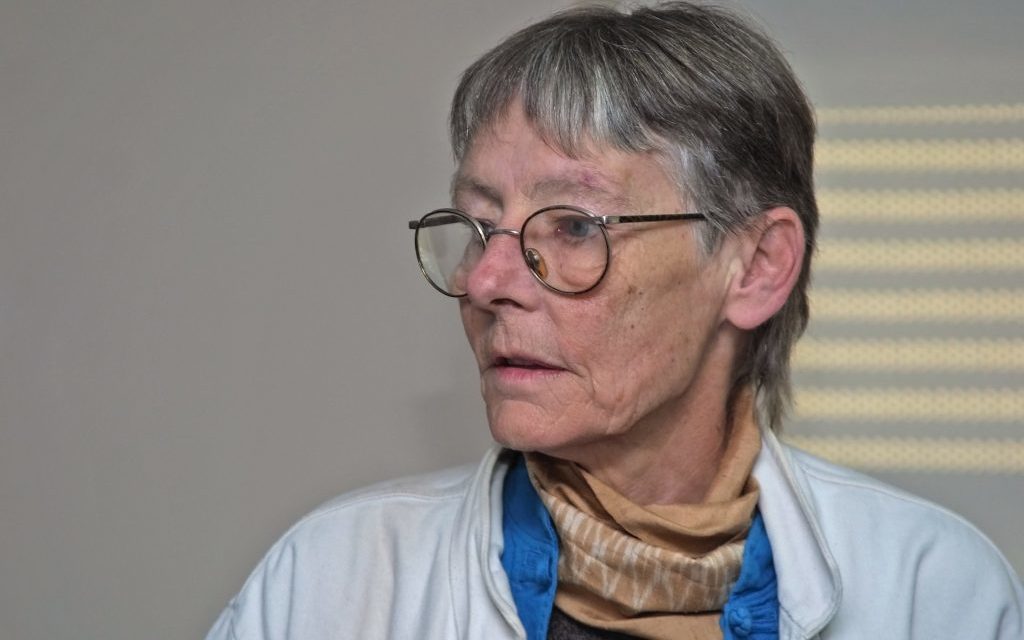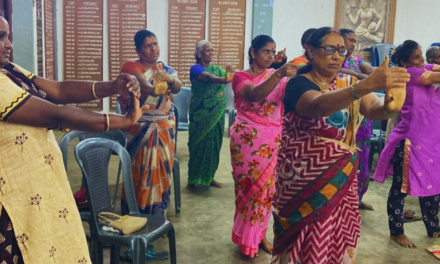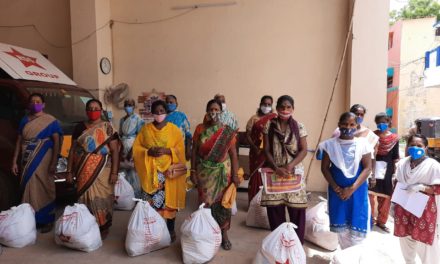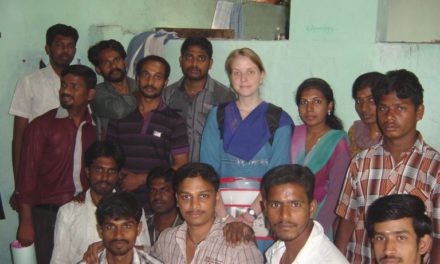“Jane Tate was one of the founding members of Home Workers Worldwide (HWW). Jane also helped establish the West Yorkshire Homeworking Group and the National Group on Homeworking, which led to the inclusion of homeworkers in minimum wage legislation in the UK. She worked with homeworkers in Europe, Asia, and Latin America, and oversaw the International Mapping Programme in the early 2000s which laid the groundwork for current homeworker organizing strategies.
Jane retired from HWW in 2017 due to ill health. In September 2018, Jane died at the age of 73 at her home in Leeds.”
The first time anyone in Cividep met Jane Tate was in 2008. My colleague Suhasini Singh was on a speaker tour on working conditions in the garment supply chain and Home Workers Worldwide (HWW) had arranged a meeting in Leeds. This initial contact gradually developed into an exchange of ideas and information.
I think it was only in October 2013 that I met Jane for the first time. She and an activist colleague Gowsiga, from Pudukkottai in Tamil Nadu arrived at Cividep’s office in Bangalore.
I had some familiarity with the work of Jane and HWW by then, but to speak to Jane directly was another matter. It was obvious she knew a lot about the most vulnerable workers in India and in her calm, clear-thinking ways, wanted to do what she could. She was looking for allies. We had no hesitation.
Jane raised some funds to help us begin work in the leather goods production center in the dusty (and hot) little town of Ambur in Tamil Nadu. As important as the grant, Jane’s insight into the conditions of work of homeworkers the world over in the global supply chains of textiles and leather was greatly helpful. Her brief notes on various issues concerning home workers, in her simple, direct style of writing, with no exaggeration and without any explicit emotional appeal, were invaluable.
In the brief span of about 10 years, our relationship grew and we worked together on some of the intractable problems in the garment and leather supply chains in South India: the abominable ‘Sumangali’ system in spinning mills and garment factories where girls as young as fourteen years were enticed into work upon the promise of a lump sum after a certain number of years, purportedly to pay for their ‘dowry’ during their wedding; the utterly poor homeworkers in the leather industry who were at the mercy of agents and had no legal protection whatsoever. Jane’s views and analysis were something we looked up to, and she always had the patience to listen to the various challenges in organizing marginalized and vulnerable workers.
As our cooperation with HWW grows and we are able to make some tiny little difference in the lives of just a few score homeworkers in Ambur and surroundings, we remember Jane.
By Gopinath K. Parakuni
References :
https://southleedslife.com/obituary-jane-tate-1945-2018/
https://www.theguardian.com/society/2018/dec/21/jane-tate-obituary
http://www.homeworkersww.org.uk/news/sad-news-about-our-friend-and-colleague-jane-tate
Picture of Jane Tate [jpg]. (2019). Retrieved from https://southleedslife.com/obituary-jane-tate-1945-2018/





